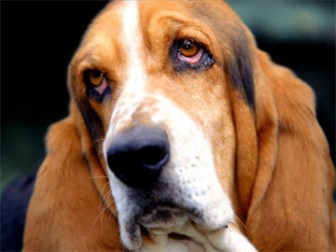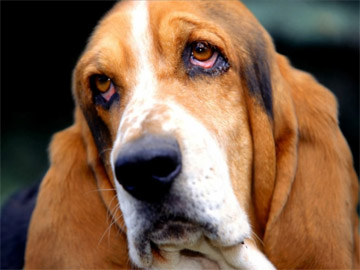There is an organ in dogs which, when enlarged, can impact on the animal’s ability to urinate. This organ (gland) is the prostate. Because of the ailing prostate’s influence on the voiding of urine, we will have to include this organ in the discussion of ailments of the urinary system. Prostate problems in dogs are relatively common, but we will only deal with those which impact on the functions of the urinary system.
Enlarged prostate
The prostate is an accessory sex gland in males found at the base of the bladder. It partly surrounds the urethra, the tube leading the urine from the bladder to the penis (vagina).Prostatic enlargement occurs in many dogs over five years of age, but few show any ill effects from it; my experience is that those that do usually are elderly. An enlarging prostate gland often expands backwards into the rectal area. When large enough, it can push forward and exert pressure on the outlet of the bladder causing changes in the voiding pattern (frequent urination, dribbling and loss of control). The enlargement of the prostate gland can be associated with abscesses, cysts and cancers. Some bacterial infections of the prostate can lead to a swelling as well.
Symptoms

Over the many years of having to confront prostatic problems in dogs, I have observed that prostatic ailments are often associated with recurring urinary tract infections and blood in the urine.
Treatment

Additional nonspecific symptoms such as fever, losing weight, severe stiff and compromised hind leg movement and abdominal pain are often present when prostate problems emerge.
Medical treatment involves the administration of estrogen, the female hormone. The exact dosage is important to prevent complications. It should be prescribed by a veterinarian.
Castration is the surgical treatment of choice. It results in shrinkage of the gland.
Cancer of the prostate gland is uncommon in the dog.
Prostatitis
Acute prostatitis is a bacterial infection of the prostate gland. The signs are fever, an arched back or a tucked-up abdomen, pain on urination and difficulty in voiding. Infected-looking secretions may drip from the penis. The disease can become chronic with periodic flare-ups. It is one cause of sterility in the male.
Treatment
Prostatitis should be treated by a veterinarian.Appropriate antibiotics are employed, based on cultures of prostatic secretions. They must be continued for four to six weeks. Castration is often recommended when there is a lack of response to antibiotics.
Now that I have touched the maladies associated with the prostate gland in dogs and how they can be connected with ailments of the urinary system, (which is our current focus), it has become clear that, at some later date, we must deal with prostate problems more comprehensively.
Happy Caricom Day!
Please implement disease preventative measures (vaccinations, routine dewormings, monthly anti-heartworm medication, etc) and adopt-a-pet from the GSPCA’s Animal Clinic and Shelter at Robb Street and Orange Walk, if you have the wherewithal to care well for the animals. Do not stray your unwanted pets, take them to the GSPCA’s Clinic and Shelter instead. If you do not wish your pet to have puppies or kittens, you may exploit the GSPCA’s free spay and neutering programme. If you see anyone being cruel to an animal, or if you need any technical information, please get in touch with the Clinic and Shelter by calling 226-4237.





